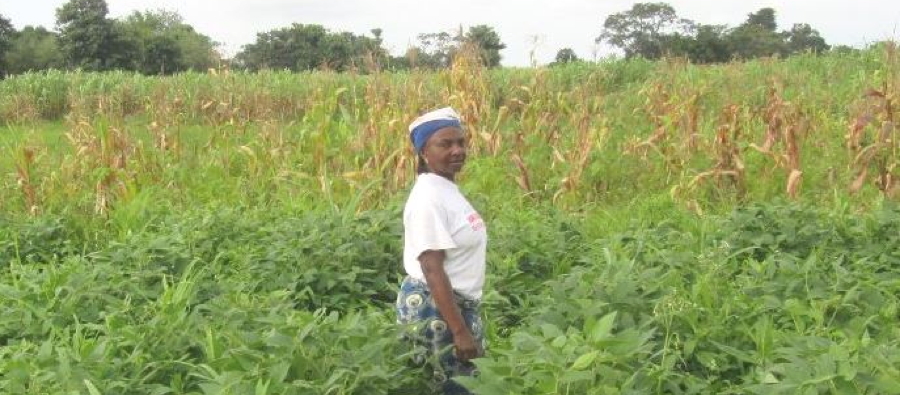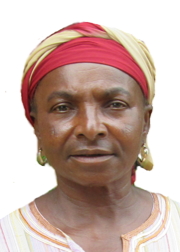FF: How did you begin your career as a farmer?
MM: I was first introduced to farming as an elementary student. The teachers would take us to the countryside in the evening where we would work in the gardens and learn about farming. I took an interest and learned much. After marriage, my husband and I as teachers made little money. So I began farming to supplement our income.
FF: What are the challenges farmers face in your region?
MM: In our region, one of the main difficulties is access to the equipment that can make our agriculture less labour intensive. In addition, reliable access to improved seeds and inputs can be a real challenge. Finally, for women, the right to inherit and have title to land is difficult.
FF: Is climate change affecting your region?
MM: Yes. The main difference is in the timing and duration of the annual rainy season. One year the rains may come late; the next year they may be very early. For example, farmers in my region of Kaduna state usually plant rice in July to coincide with the annual rains. However, this year the rains came early and our rice harvest will be very small.
FF: How have you overcome these challenges?
MM: I have sought out education and worked to develop test plots that not only help me to try new techniques and seeds, but also help other women to learn more modern practices of farming – in seed spacing, rotation with legumes, and moisture retention.
FF: Do you think women face more difficulties than male farmers?
MM: Yes. Women especially have difficulty in have secure access to land. Men are most often the landowners in the family, so if a woman is widowed she often cannot inherit the land. And yet, women are the majority of those that work the land and produce the crops, but often have the least ability to obtain credit. In addition, many extension programs are directed to men, and women are not as accepted.
FF: How have you overcome these difficulties?
MM: Like other Female Food Heroes, I have worked to form women’s groups where we share knowledge, and create opportunities for work and added value in our crops. Women mentoring and working with other women is a powerful tool.
FF: How did you get involved in the Female Food Hero Competition?
MM: A local organization came to my community with an application for the Nigeria Ogbonge Woman completion sponsored in part by Oxfam. I applied and out of over 1,200 women, I was one of twelve finalists. I then went on to take a 2nd position. Using the proceeds from that initiative, I was able to purchase the land I farmed, work as an advocate for small-scale women farmers in my region and also in other countries like Ethiopia and the U.S.
FF: How did it feel to win the competition?
MM: At first I had no words. I was the only woman winner from my state of Kaduna. I am happy that my winning is allowing me to help other women farmers, and advocate for the rights to land and the need to address climate change.
FF: What are your hopes for the future of your farm?
MM: I hope that I can continue to improve and add value to my farm, so that as I get older I will be able to sell it to another farmer and be able to use that money to benefit other women, my community, and the world.
FF: What is your message to other female farmers on International Day of Rural Women?
MM: My message is that women must join together to build a better food system, and to advocate for our rights to land, tools, and education.



